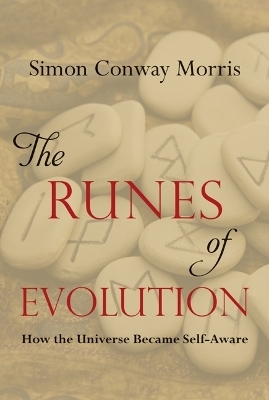
Runes of Evolution
Templeton Foundation Press (Verlag)
978-1-59947-464-9 (ISBN)
A leading evolutionary biologist at the University of Cambridge, Conway Morris came into international prominence for his work on the Cambrian explosion (especially fossils of the Burgess Shale) and evolutionary convergence, which is the process whereby organisms not closely related (not monophyletic), independently evolve similar traits as a result of having to adapt to similar environments or ecological niches.
In The Runes of Evolution, he illustrates how the ubiquity of convergence hints at an underlying framework whereby many outcomes, not least brains and intelligence, are virtually guaranteed on any Earth-like planet. Conway Morris also emphasizes how much of the complexity of advanced biological systems is inherent in microbial forms.
By casting a wider net, The Runes of Evolution explores many neglected evolutionary questions. Some are remarkably general. Why, for example, are convergences such as parasitism, carnivory, and nitrogen fixation in plants concentrated in particular taxonomic hot spots? Why do certain groups have a particular propensity to evolve toward particular states?
Some questions lead to unexpected evolutionary insights: If bees sleep (as they do), do they dream? Why is that insect copulating with an orchid? Why have sponges evolved a system of fiber optics? What do mantis shrimps and submarines have in common? If dinosaurs had not gone extinct what would have happened next? Will a saber-toothed cat ever re-evolve?
Conway Morris observes: “Even amongst the mammals, let alone the entire tree of life, humans represent one minute twig of a vast (and largely fossilized) arborescence. Every living species is a linear descendant of an immense string of now-vanished ancestors, but evolution itself is the very reverse of linear. Rather it is endlessly exploratory, probing the vast spaces of biological hyperspace. Indeed this book is a celebration of how our world is (and was) populated by a riot of forms, a coruscating tapestry of life.”
The Runes of Evolution is the most definitive synthesis of evolutionary convergence to be published to date.
Simon Conway Morris is a leading evolutionary biologist and best known for his work on the Cambrian explosion (especially the Burgess Shale) and evolutionary convergence. He is also active in public outreach, especially in the area of science and religion where he also published extensively. A frequent guest on radio, and also with many television appearances, he has pioneered an extremely successful website on convergence (www.mapoflife.org) and is now constructing a new one addressing the wider issues of evolution. Based in the Department of Earth Sciences at the University of Cambridge, where he holds the chair in evolutionary palaeobiology, he is also a fellow of St. John’s College. His work has taken him to many parts of the world, including China, Mongolia, and Greenland.
Acknowledgments / xi
Introduction / 3
1. Dinner on the Lagoon / 9
2. Consider the Octopus / 11
3. Convergence: How Clear Is the Signal? / 21
4. The Inevitability of Form / 31
5. Swallowing Convergence / 44
6. Biting Convergence / 53
7. Walking (and Swimming) to Convergence / 67
8. Sticking to Convergence / 82
9. When Evolution Begins to See / 93
10. The Color of Evolution / 108
11. The Smell and Taste of Evolution / 120
12. (In)tangible Evolution / 128
13. The Road to Mushrooms / 150
14. The Road to Plants / 155
15. The Arthropods Show the Way / 165
16. Converging on the Farm / 177
17. The Road to the Sky / 189
18. The Birds Converge/ 200
19. Sexual Convergence / 209
20. The Road to Mammals / 221
21. The Roots of Sentience / 234
22. Convergent Brains / 241
23. The Road to “King Cortex” / 252
24. Convergent Minds / 263
25. Playing with Convergence / 273
26. The Final Steps / 286
27. Back to the Lagoon / 301
Notes / 305
General Index / 463
Index of Genera / 489
| Erscheint lt. Verlag | 22.6.2015 |
|---|---|
| Verlagsort | Radnor |
| Sprache | englisch |
| Maße | 178 x 254 mm |
| Gewicht | 1143 g |
| Einbandart | gebunden |
| Themenwelt | Geisteswissenschaften ► Religion / Theologie |
| Naturwissenschaften ► Biologie ► Evolution | |
| Schlagworte | Evolutionsbiologie |
| ISBN-10 | 1-59947-464-6 / 1599474646 |
| ISBN-13 | 978-1-59947-464-9 / 9781599474649 |
| Zustand | Neuware |
| Haben Sie eine Frage zum Produkt? |
aus dem Bereich


